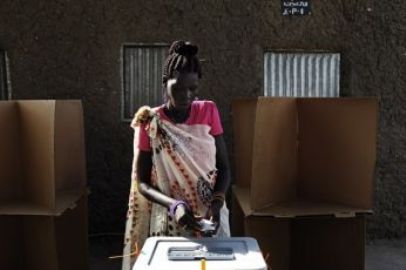South Sudan’s 2015 general elections may not take place: census official
September 11, 2013 (JUBA) – A senior official of South Sudan’s government has hinted that the 2015’s country-wide elections may not take place if the exercise will be based on the constitutional requirement for a population census as a prerequisite.

In accordance with the country’s transitional constitution, the census, which would be the first of its kind after 2011 independence, was needed in order to demarcate and redistribute the current constituencies.
The last census was conducted in 2008 under Khartoum’s supervision when Sudan was still one and the result was disputed in South Sudan.
The current composition of the national parliament includes those that were elected to the then national government in Khartoum and southern semi-autonomous government in Juba by their constituencies in South Sudan.
A good number was later on also appointed to the parliament by the president of the republic, Salva Kiir, making a total number of 350 lawmakers.
Aruai however lamented that his institution has not been availed with funds in order to acquire the necessary logistics for the task, warning that their timetable for conducting a series of activities before 2015 has a very limited chance for success as they have not yet kicked off.
He doubted whether the bureau would achieve its task by 2015 even if it were to receive the needed fund this year.
He however denied lack of political will by the country’s leadership to conduct the first post-independence elections in 2015.
The census bureau’s chief however added that it will be up to the political leadership to decide whether to conduct the elections without the census as its prerequisite.
Observers say that the country may push the elections to 2017 or beyond, citing as hindrances other internal political developments and lack of funds for the electoral commission in order to carry out its task and meet the timetable.
They point that the top political leadership may use the lack of funds as excuses to make sure that such elections do not take place per schedule.
The electoral commission also published a statement on Wednesday announcing that it will not conduct a constitutionally required gubernatorial election in Unity state due to lack of funds.
The elected governor of Unity state, Taban Deng Gai, was sacked by the president and a caretaker governor, Joseph Nguen Monytuil, was installed by a presidential decree.
The same scenario occurred last year in Lakes state where an elected governor, Chol Tong Mayay, was sacked and replaced with a caretaker governor, Matur Chut, for an indefinite period.
The constitution however stipulates that a new election for the vacant position of the governor shall be conducted within 60 days.
(ST)
